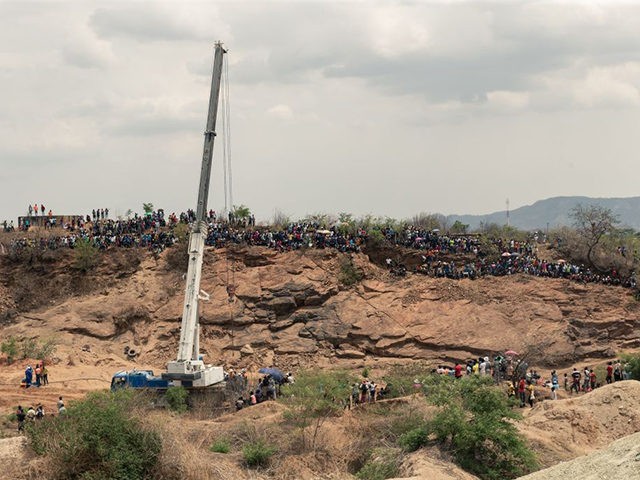Zimbabwean media reported Monday that villagers have accused Chinese mining companies of bribing local leaders to take control of mining areas, displacing village residents, and seizing control of land inside protected game preserves.
The report from New Zimbabwe said villagers are increasingly angry about Chinese mining interests running roughshod over local residents and violating laws with impunity:
In September last year, two Chinese companies courted the anger of not only the Hwange community but a cross section of Zimbabweans and wildlife activists as well as conservationists after they explored for coal in the protected Hwange National Park.
Workers from the two companies were discovered by Zimparks rangers while drilling in the game park and were handed over to police, but the Asian nationals produced a permit showing they had been granted a special grant by President Mnangagwa. The special grant was later revoked following widespread outcry from Zimbabweans.
In the latest incident, some Chinese are reportedly exploring in Dinde, about 30km outside Hwange town along the Hwange-Bulawayo road as well as around Dete and Makwandara areas where there are rumours villagers will be displaced.
Villages from the region surrounding Hwange said Chinese surveyors are traveling in the company of local leaders who allegedly cut “underhanded deals with the Chinese” and “clandestine arrangements” to give Chinese miners control over the land.
“The problem is that there is no land ownership in rural areas in Zimbabwe. We don’t own land, and government takes advantage of that. We cannot make developments when we don’t even own the place,” one villager complained.
Chinese mining firms were criticized last year for invading the Hwange national park and damaging the habitats of endangered species. The mining operations are also a threat to tourism in the park, which accounts for a great deal of revenue for local villagers.
“This is one of the greatest game parks in the world and the mines would be in one of the most pristine areas of the park. The last black rhino population in Hwange Park lives there, so do 10,000 elephants and 3,000 buffalo. If it goes ahead it will be an end to the park. It would kill the tourist industry which is worth hundreds of millions of dollars,” Trevor Lane of the Bhejane Trust, a nonprofit dedicated to preserving the African black rhino, told the UK Guardian in September.
The Guardian noted Zimbabwean President Emmerson Mnangagwa has been personally granting mining concessions, with a particular interest in extracting coal for the massive climate-unfriendly coal power plants China has been building in his country.
“Conservationists say surveyors have begun taking samples, which should not be allowed before the environmental assessment. A month ago, the rhino monitoring team of the Bhejane Trust said it came across a Chinese team drilling for coal without prior consultation with the area manager,” the Guardian reported.
“Authorizing coal mining within Hwange National Park is a serious environmental crime by the government and miners. This activity threatens biodiversity within the park,” the Center for Natural Resource Governance Zimbabwe charged in September after the unexplained deaths of 22 elephants.
Zimbabwe ostensibly banned coal mining in the Hwange game park after environmental activists complained about the Chinese operations. There was also much criticism of Chinese supervisors for abusing their Zimbabwean employees, including a Chinese boss who shot two Zimbabweans during an argument over unpaid wages in June 2020.
Chinese corporate mining interests have been involved in violent disputes with Zimbabwean “artisanal gold miners,” independent locals who claim the right to work on land which the Chinese have been given permits to exploit.
Four Chinese nationals were seriously injured two weeks ago when they ordered artisanal miners to abandon one of their digs, and the Zimbabweans attacked them with crowbars, picks, and shovels. The company the Chinese worked for, Zhong Jian, allegedly killed a number of artisanal miners in November when it used an excavator to collapse the pit they were digging in.
Much as the Hwange villagers accuse local officials of taking bribes from the Chinese to let them mine wherever they please, the Zimbabwean national opposition accuses Mnangagwa and his cronies of “asset-stripping” Zimbabwe in exchange for Chinese money. Some of this stripping involves using Zimbabwean resources as collateral to obtain big loans from China; much of the money is then misappropriated by Zimbabwean officials, leaving China to take possession of the resources as Zimbabwe accumulates debts it cannot repay.
The Mnangagwa government, in turn, accuses the opposition of stirring up anti-China sentiment as a populist scheme to win votes.

COMMENTS
Please let us know if you're having issues with commenting.